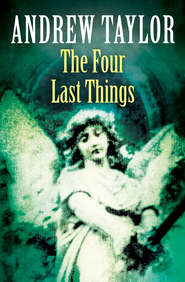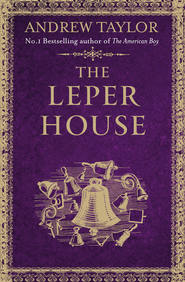По всем вопросам обращайтесь на: info@litportal.ru
(©) 2003-2024.
✖
The Silent Boy
Автор
Год написания книги
2018
Настройки чтения
Размер шрифта
Высота строк
Поля
There are footsteps in the hall. Monsieur Fournier enters the library. The doctor clicks his tongue on the roof of his mouth and goes to stand by the window to look at the rain. Charles shrinks away from him, knocking against the globe.
Fournier’s eyebrows rise at the sight of the boy. His eyebrows are unusual because they have a kink in them in the outer edges. This makes him look elegantly surprised all the time. Charles thinks this may be misleading. Nothing really seems to surprise Fournier at all.
‘Still silent?’ he says.
‘It’s quite ridiculous,’ says the Count.
Fournier smiles and the crooked eyebrows ride even higher. ‘Mum’s the word,’ he says in English, though they have been talking in French until now. ‘That’s what the English say. Is it not droll?’
‘I confess the humour escapes me at present.’
Monsieur Fournier cocks his head. ‘It may have to escape you for longer. You remember the gardener’s boy?’
‘No,’ the Count said. ‘Why the devil should I?’
‘The one you thrashed the other day.’
‘Oh yes – what of him?’
‘His grandmother has been to see the Vicar, who is also the magistrate here. There is talk of an action for assault.’
‘Oh, for God’s sake – he’s only a peasant, and our own servant too. What is the difficulty?’
‘This is England,’ Fournier says.
‘Do they not beat their servants here?’
‘Yes, of course. But not as we do. You know the English – they do things differently. When it suits them.’
‘More fool them.’
‘Besides, in theory he’s in the employ of Mrs West. I think a few shillings should resolve it, as far as the boy and his grandmother are concerned. But it will be inconvenient if we upset Mr Horton any more than we already have.’
‘A village curé?’ the Count says. ‘What a country this is! What an absurd country.’
‘Yes, indeed. But Mr Horton is a gentleman, and a man of much influence in his own parish.’ Fournier smiled. ‘We would do well to make him obliged to us. And, fortunately, there is a solution to hand: Charles.’
‘Dear God, you speak in riddles this afternoon.’
‘It’s quite simple. Mr Horton believes in the power of prayer.’
‘Superstitious nonsense,’ Gohlis muttered.
‘That’s neither here nor there,’ Fournier says. ‘I shall write to Mr Horton before dinner. And you would do well—’ He breaks off and cocks his head. ‘What’s that?’
‘Someone coming up the drive, sir,’ Gohlis said. ‘We have a visitor. In a cart, of all things.’
‘Who?’
‘I don’t know.’
Fournier glances at the Count. For a moment the men do not move or speak. Everyone is listening. Rain patters on the long windows at the end of the room. Dr Gohlis laughs, a high, nervous giggle. Monsieur de Quillon scowls at him.
‘Charles,’ the Count says, ‘go upstairs. Go to your room and stay there until you are summoned.’
Fournier says nothing. He watches them with his bright eyes.
Someone knocks on the front door.
‘Use the main stairs,’ Monsieur de Quillon says to Charles. ‘Go. Go now.’
Fournier accompanies Charles into the hall. Joseph the footman is moving towards the front door.
‘Just a minute,’ Fournier says to the servant in English. ‘Who is it? Do you know?’
The footman changes course. He goes to a small window that commands a view of the forecourt in front of the house.
Charles climbs the stairs. He turns at the half-landing and continues up the next flight.
‘It’s Mr Roach’s cart, sir,’ he hears Joseph say. ‘And there’s a man sitting beside him. Don’t know him from Adam.’
‘You may open the door now,’ Monsieur Fournier says.
Charles hears the click of the library door closing. He glances down the stairs but he can see little of the hall below. What he can see, however, is the great mirror that hangs at the turn of the stairs so that the ladies and gentlemen may look at themselves as they go to dinner. The mirror is set in a gilt frame that is no longer golden but a dirty yellow brown. The glass is spotted with damp. The silvering near the bottom has quite worn away. Charles has hardly noticed the mirror’s existence before because usually he uses the back stairs.
In the foggy world of the reflection, a boy wavers in the depths of the mirror. Ignoring the voices in the hall below, Charles steps up to it and stretches out his right hand towards the boy he sees there. In the mirror the reflected boy mimics his action.
Charles’s right hand almost touches the boy’s left hand. The mirror glass is all that divides them, that and the layer of candle grease and dust that has settled along the bottom rail of the frame and spread slowly higher over the years.
‘Gentleman’s had a mishap on his way here,’ he hears a man say below in the rolling, comfortable voice that the peasants use in this place. ‘His chaise turned over in Parker’s field.’
Charles wonders whether he has lost his reflection as well as his voice. He does not recognize the boy’s face, his ragged clothes or his untidy hair – he is a stranger. Yet it is he, Charles. But he looks like someone else, not the boy who used to examine himself in Maman’s looking glass.
‘My name is Savill,’ says another voice, a man’s. ‘The Count de Quillon is expecting me.’
Charles turns and runs up the stairs.
Chapter Fourteen (#ulink_074ad6ca-92de-516e-9e7c-f3320b03cbcc)
Two manservants, a French valet smelling of scent and an English footman smelling of sweat, converged on Savill. At a nod from Monsieur de Quillon, the valet peeled away his outer garments.
‘My dear sir, you are soaked,’ the Count said in French. He glanced at his valet. ‘Make sure they’ve lit the fire in Mr Savill’s room.’
‘You are most kind, sir, but I cannot possibly—’
‘Nonsense, sir. You will stay with us.’
Fournier smiled at Savill. ‘Monsieur de Quillon is right,’ he said in English. ‘You will be doing us a kindness, sir – indeed, we have been counting the hours since your attorney’s letter arrived. We see very little company. Besides, the inn is quite intolerable.’











